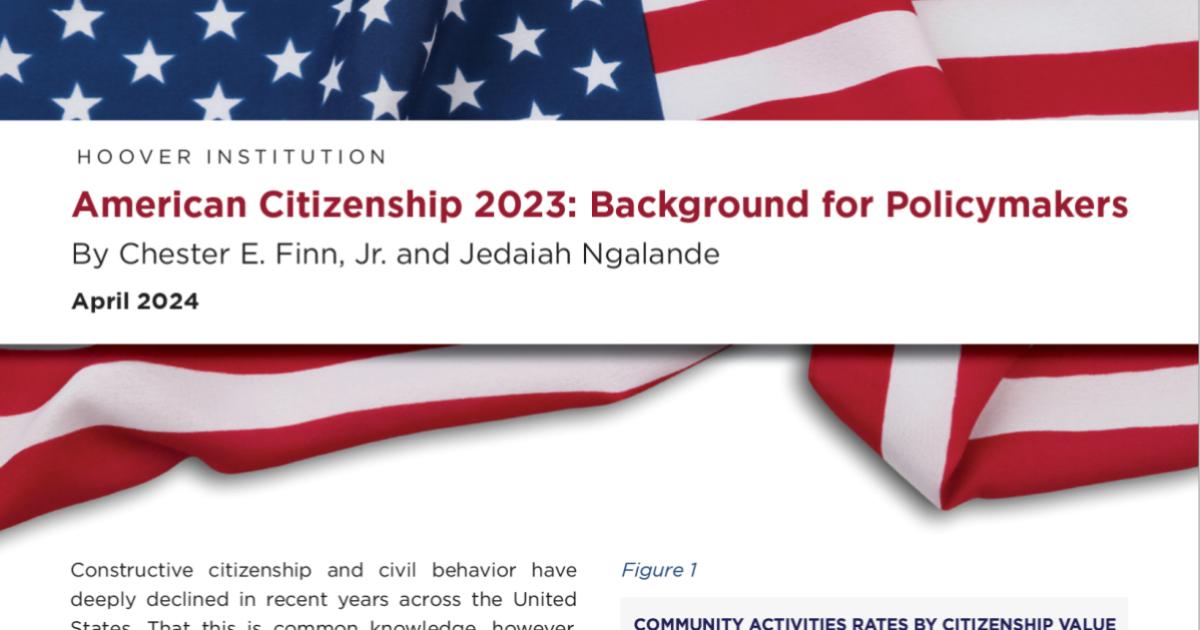Constructive citizenship and civil behavior have deeply declined in recent years across the United States. That this is common knowledge, however, does not mean it’s well documented or its many nuances carefully explored. To illumine the situation further, the Hoover Institution’s Working Group on Good American Citizenship teamed up with YouGov to conduct a survey in August 2023. The results from the representative sample of 1642 adults showed both substantial cause for concern, especially at the national level, and some grounds for hope, predominantly more local.
Contempt and mistrust of America’s political process and leaders runs rampant, yet most Americans still treasure the nation’s core values and their personal communities. They praise local government, keep themselves informed about public affairs, participate in community affairs, and often keep disagreements on sociopolitical issues respectful.
Furthermore, when asked what are the characteristics of “good citizens,” 55% of respondents rated “helping neighbors” as one of the three most important qualities. 64% believe it is “very” (19%) or “somewhat” (45%) important for Americans to attend town hall meetings. 65% believe it to be “very” (20%) or “somewhat” (45%) important to participate in “politics beyond voting,” as shown in the figure below.
Yet the survey cast a darker picture regarding national questions. Asked about their faith in the federal government, only 36% of respondents said it “improves conditions in the United States,” while 31% said “we would be better off without” it! Is it because they’re mystified by it? 44% of respondents believe people “have trouble understanding political and governmental affairs” because “those in power don’t help people to understand.”
Though the overwhelming majority of Americans cherish democracy, survey respondents reported having little use for their elected leaders. Almost nine in ten (89%), believe that “elected officials talk too much and take too little action.” 82% endorsed the statement “elected officials always end up agreeing when it comes to protecting their own privileges.” 70% believe “the people, not the elected officials, should make our most important policy decisions.” 66% concurred with the statement, “I would rather be represented by an ordinary citizen than by an experienced elected official.”
















